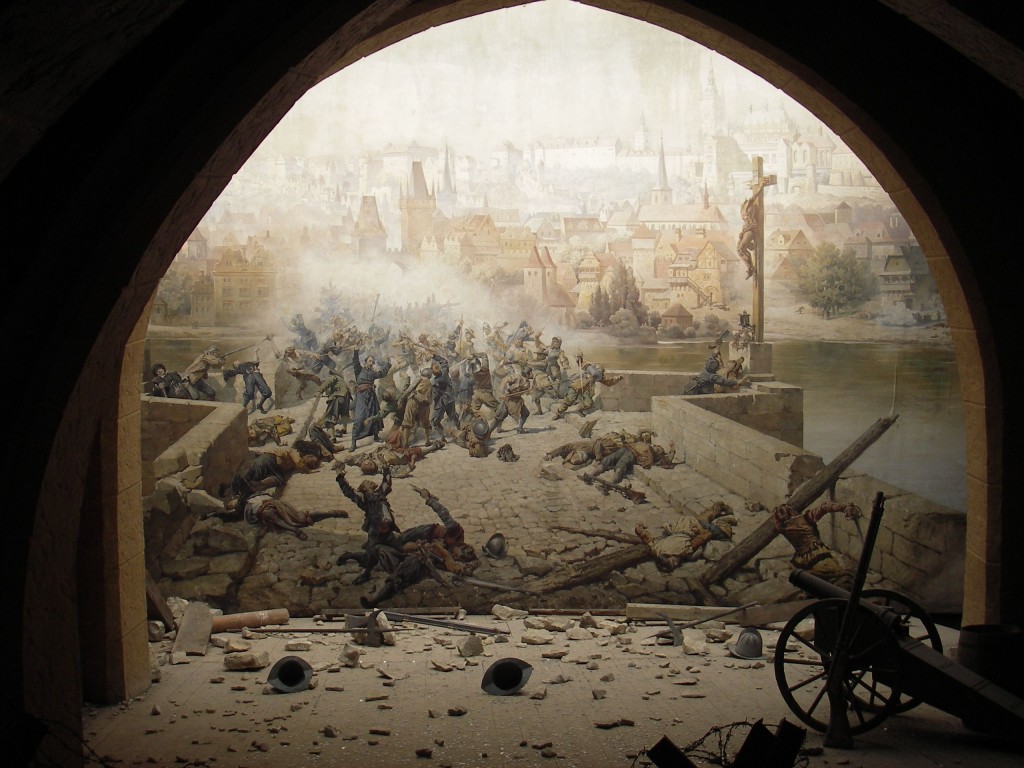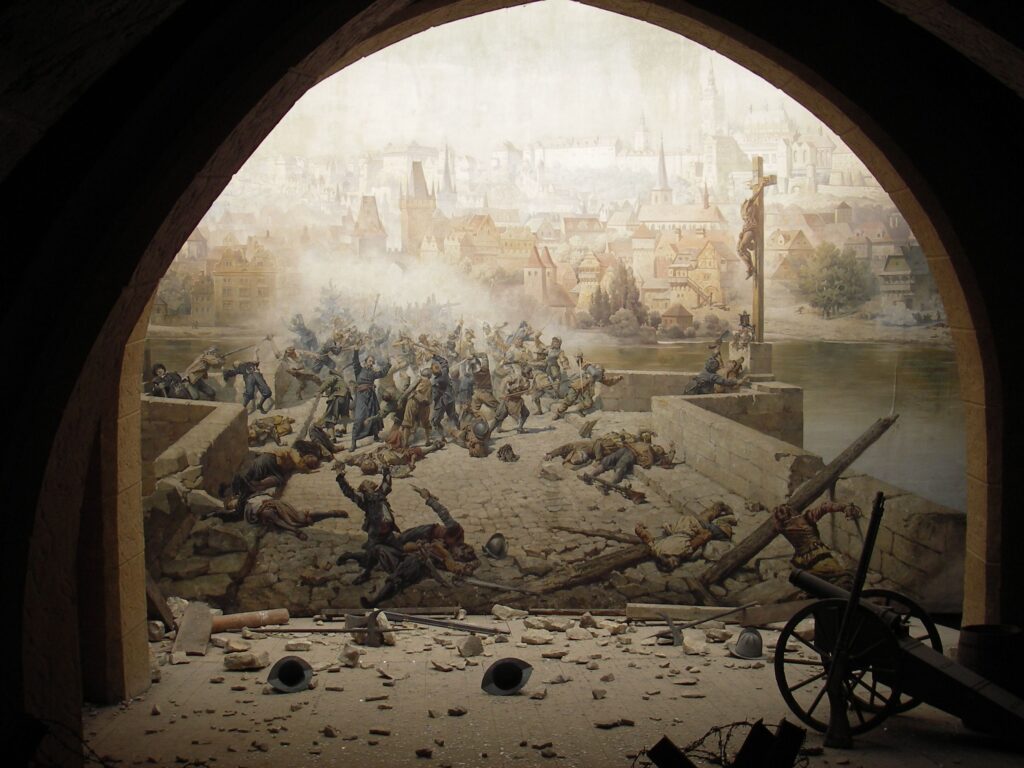
As students of international relations, we are all familiar with the Westphalian system. The traditional story is as follows (in greatly simplified form):
The Thirty Years’ War was a struggle between two main parties. On one side were the “universalists” and on the other were the “particularists”. The universalists were the members of the Habsburg dynasty who advocated absolute control over Christendom. The particularists were those who rejected overlordship and upheld the right of all states to full independence. The particularists won, and the great Peace of Westphalia was signed, which formalized the principles of state sovereignty, autonomy, and equality. The Peace of Westphalia marked the transformation of the international system into a system that would respect a states’ authority over its defined geographic area and freedom from outside interference in its domestic affairs. The Westphalian system has been the primary structure of the international system since 1648, but reached its peak, or “Golden Age”, in the nineteenth century with the rise of nationalism.
International relations theorists adopted the view of the winners and three main tenants of the treaty are defined as enduring characteristics of the international system:
- All states have a right to sovereignty and political self-determination
- All states are legally equal
- One state (or a group of states) cannot interfere in the affairs of another
The Westphalian settlement has formed the normative structure of the modern world order for the past four centuries. However, in the past twenty years or so, it has been suggested that the Westphalian system is in decline. One can observe the gradual shift from the state-centric Westphalian system to one (which has yet to be defined or labeled) which includes strong non-state actors such as the European Union, terrorist groups, NGOs, etc.
But my question is: how can we be moving into a post-Westphalian system when the Westphalian system never existed?
The Westphalian system is a construct that has guided international relations for hundreds of years. But I believe that we have never actually experienced a true Westphalian system.
First, let’s look at the Thirty Years’ War. Common IR rhetoric tells us the story written above. It’s clear that this was a complex conflict with a variety of actors, motivations, and goals. But if one examines the war more closely, the Habsburgs did not start the war because they wanted to expand their power. In fact, the other actors (France, Denmark, and Sweden) in Europe were trying to diminish the Habsburg’s role and aggressively expand their own territory. The war began as a conflict between the Habsburg’s and the German princes; the other powers jumped in claiming to be fighting oppression, but really hoping to increase their landholdings.
So, if the war was not fought in the name of defending national sovereignty, then our interpretation of the peace treaties cannot be right. IR scholars tend to read the treaties as concerned with issues of sovereignty and reordering the European system. However, the peace treaties dealt primarily with freedom of religion and religious practices within states. None of the states involved in the war were concerned with losing their sovereignty, but rather with reshuffling the balance of power in their favor. No great revolution in the way we conceptualize sovereignty actually occurred. The hierarchical system that was in place before the Thirty Years’ War, endured after the war and after the peace treaties. The idea of an international “system” is an 18th century construct that was then used to analyze past events. The Peace of Westphalia is a major turning point, not because the peace treaties themselves said anything about the principles of sovereignty, territoriality, and autonomy, but because of their implications for the development of IR theory.
Also, the Westphalian system has more exceptions than rules. I can name hundreds of instances in which the sovereignty of one state was violated by another: recent intervention in Libya, the European Union, the First Gulf War when Iraq invaded Kuwait, Soviet satellite states during the Cold War, colonization of the Americas, Asia, and Africa…I could go on forever. The point is, if we insist that the principles of sovereignty, territoriality, and autonomy are the three foundational principles of international system, why do we break our own rules so often? Could it be because our fixation on the Westphalian model is preventing us from seeing the world as it really is? We cannot claim that we operate in the Westphalian way when we conduct our international relations as exceptions to the Westphalian model.
But just because the Westphalian system is imaginary does not mean that it is not important. Whether it exists or not, the Westphalian model has guided international relations for over four hundred years. The basic notions of sovereignty, territoriality, and autonomy are the foundations upon which we have structured our world. And this story that we are told about the Westphalian system makes sense. The Westphalian model offers a simple, arresting, and elegant image of our world. And we’re reluctant to accept that the lens we have constructed, the lens through which international relations has been studied for years, is just that: a lens. The recent discourse on the “decline” of the Westphalian system is relevant only in the theoretical sense. IR theory tells us that it’s important to understand we are moving to a post-Westphalian world; but in actuality, we were never even in a Westphalian system.
For further reading, see:
Krasner, Stephen D., “Compromising Westphalia”, International Security, vol. 20, no. 3 (Winter, 1995-1996), pp. 115-151.
Oseander, A., “Sovereignty, International Relations, and the Westphalia Myth”, International Organization (55, 2001).
Strange, S., “The Westfailure System”, Review of International Studies, vol. 25, no. 3 (1999), pp. 345-354.
Gross, L., “The Peace of Westphalia, 1648-1948”, American Journal of International Law (53, 1959).
Darel Paul, “Sovereignty, Survival and the Westphalian Blind Alley in International Relations”, Review of International Studies, volume 25, issue 02; April 1999, pp 217-23.







